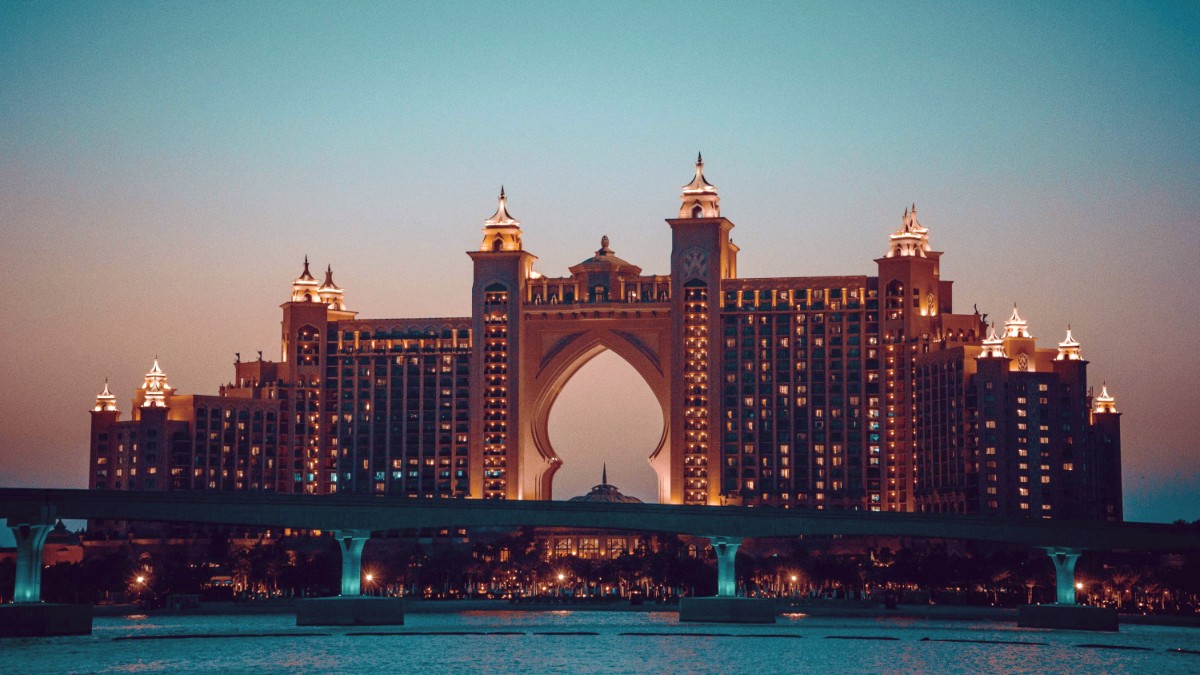
The Northern Emirates, United Arab Emirates
Emirati cuisine has deep roots in Bedouin, coastal, and agricultural traditions. It carries influences from historical trade routes with Persia, India, and the Levant.
The cuisine features fresh seafood, lamb, goat, and camel meat, alongside rice and a rich array of spices. Hospitality and shared meals hold a main place in Emirati culture.
Dates, rice, camel meat, lamb, goat, fish (e.g., Kingfish, Hammour), chickpeas, lentils, wheat, and vegetables like cucumber, tomato, and onion.
Saffron, cardamom, turmeric, cinnamon, cloves, black pepper, and dried limes (loomi).
Emirati dishes are aromatic and subtly spiced, often with a hint of sweetness from dates or honey. Flavors are generally less intense than Indian cuisine and often milder than some Levantine dishes.
A savory dish of wheat and meat (chicken or lamb), slow-cooked until it becomes a thick, porridge-like consistency.
Often seasoned with salt and sometimes a drizzle of ghee. Appears in traditional Emirati restaurants, especially during Ramadan.
An aromatic rice dish with meat (lamb, chicken) or fish, cooked with spices, dried limes, and vegetables.
Similar to biryani but features distinct Emirati flavors. Widely available.
A stew of meat and vegetables (potatoes, carrots, marrow) served over thin, flat Emirati bread (rigag).
The bread soaks up the flavorful broth.
Sweet, deep-fried dough balls, crunchy outside, soft inside, drizzled with date syrup (dibbs) and sometimes sesame seeds. A popular dessert or snack.
A fundamental part of Emirati hospitality and diet. Many varieties exist, often served with Arabic coffee.
Many upscale hotels in Sharjah feature international and some Arabic fine dining restaurants.
Numerous choices present a mix of Emirati, Lebanese, Indian, Persian, and various international cuisines.
Affordable and swift meal choices are abundant.
During the holy month of Ramadan, special dishes like Harees, Thareed, and various sweets are broadly available for Iftar (breaking of the fast).
Restaurants may show restricted daytime hours or offer Iftar buffets in the evening and Suhoor (pre-dawn meal).
Eid al-Fitr and Eid al-Adha feature large family feasts with roasted meats.
These festivals present significant culinary experiences.
Some cultural centers may offer Emirati cooking classes.
Local tour operators might present walking food tours.
Sharjah frequently holds food-related events.
Iftar tents and buffets during Ramadan present communal dining.
All meat presented in the UAE aligns with halal Islamic dietary laws.
This applies to all dining establishments and supermarkets.
Kosher food is not widely available in Sharjah.
Travelers seeking kosher meals would need to arrange them, possibly sourcing from Dubai.
Lunch serves as the main meal, often eaten around 1 PM - 3 PM, featuring rice and meat or fish dishes. Dinner is typically lighter, consumed from 8 PM onwards.
Shawarma, falafel, samosas, and various grilled meat skewers present common street food choices.
During Ramadan, many hotels and restaurants host grand Iftar buffets.
Some venues offer set menus that feature traditional Emirati dishes with cultural performances.
Cafes specializing in Arabic coffee and local sweets are present throughout the city.
Use your right hand for eating and passing food.
The left hand is considered unclean in Islamic culture.
During Ramadan, non-Muslim visitors should abstain from eating, drinking, or smoking in public during fasting periods.
Observe respect for those fasting.
Some cultural centers may organize sessions demonstrating Emirati cooking.
Guided tours of local markets, like Al Jubail Souq, offer insights into fresh produce and seafood.
Participate in organized food walks to sample a variety of traditional snacks and dishes.
Sharjah maintains its status as a dry emirate.